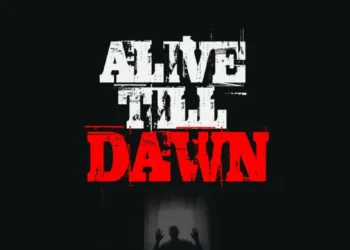Ever watched a TV show that ended and immediately felt like something was missing? Like the story wasn’t fully wrapped up or there was more to uncover? You’re not alone. Enter the world of fan theories, where imagination and curiosity collide to breathe new life into a series long after its finale. From “Game of Thrones“ to “Stranger Things,” fans have created entire universes of speculation that keep the conversations and the excitement alive. But what is it about fan theories that make them so powerful, and why do they thrive even after the credits roll?

It’s all in the magic of “Mystery and Unanswered Questions” left behind by show creators. Great shows leave threads dangling both inadvertently and by design through which the audience can insert themselves and compose their own resolution. For instance, consider all the mysteries surrounding “Lost.” A decade after that show wrapped, fan theories on its symbolic links to real-world events and philosophy persist.
Fans have dissected every episode, every clue, with some arguing they have unlocked the true meaning of the show. This level of engagement, of course, is what keeps the fandom alive and well after an official ending as new areas open up.
Then, there is just the plain creativity that is involved: by injecting meaning into a series, fans stop being passive viewers and actually become co-creators of the narrative. Take, for example, the “How I Met Your Mother” finale. In return, fans on both Reddit and YouTube began to craft their own alternate endings, creating fan content that quite often reimagine the entire storyline into manners more satisfying to the fans. Some of those alternate endings were so brilliant that they became the stuff of legend in and of themselves, the proof that even after the show had officially ended, it would continue to live on.
But it is not just about fixing bad endings. Sometimes, it’s deeper relationships with the characters and plots already created. For example, “The Office” theories often include a character like Michael Scott or Jim Halpert in some “what if” situation, such as what if Michael had remained with Dunder Mifflin or what if Jim and Pam had experienced a different set of issues? These theories are the way for fans to get really deep inside the show and find new dimensions to favorite characters and their stories.

Why do we love these theories so much? Because we get to play Columbo, we get to prolong the life of something we love, and we get this community of fans who feel the same. That is what makes TV shows living, breathing worlds; the story does not end with the credits roll but keeps further development, powered by the unlimited imagination of the audience. In one way, fan theories mean proof that a great TV show never actually dies. The legacy is living on, fueled with theories and discussions, and a fanbase that just does not let go. Maybe that’s the best kind of immortality for a series: living on well past its actual demise.

















